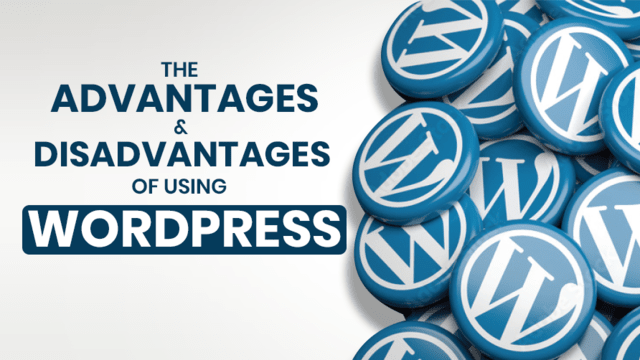Thinking about to building website for your brand? Then you must encounter the name ‘WordPress.’ WordPress is so far a convincing and popular CMS that people don’t even think of a twist to using it. The beginning of this platform was mainly used for blogging purposes, but after years of upgradation, WordPress is now capable of powering any website.
However, everything must have both sides of the story! So, with the WordPress! WordPress has many advantages that overshadow the disadvantages. But don’t worry; in this blog, we will explain both of these to inform you of the whole story of WordPress. Let’s start!
Advantages of the WordPress
- Free and open source:
Starting the advantage of the most convincing feature of WordPress is that it is expense-less and open source. Therefore, by utilizing pre-existing code, many programmers and developers publish their code online to save time and money. Due to the GPLv2 license, you can freely change, distribute, and use the code without paying a subscription or license fee.
- Simple to use:
Utilizing WordPress is straightforward. It is not necessarily sophisticated simply because it is free. It’s simple to utilize WordPress. You only need to create your profile and use it after installation. It takes little time to become familiar with its fundamentals because using it is simple to understand. Even novice users may utilize it since it simplifies content management and site-building.
- Thousands of plugin options:
WordPress offers a vast selection of plugins so you may completely personalize your website. Since they can’t get that functionality elsewhere, even if they are willing to pay for it, plugins are one of the main reasons people pick WordPress. To keep your WordPress site loading quickly and at the top of the search results, there are various sophisticated plugins for features like caching, SEO, database cleansing, etc.
Disadvantages of the WordPress
- Data Security:
This point is crucial for small businesses that don’t prioritize investment in reliable IT infrastructure. WordPress is an open resource, so your website’s security can be questionable. So, the open resource can have both pros and cons of WordPress. It is simple for hackers to identify security flaws on your website since its source code is publicly accessible and online. Cyberattacks might target your website.
- Not so responsive:
Your website may occasionally load slowly since the WordPress platform uses many generic codes for each unique function. As you are undoubtedly aware, a website’s loading speed is essential since it will attract more people if it loads quickly. Additionally, it improves user experience and raises search engine rankings.
- Plugin issues:
This is another advantage, over time, that might become a disadvantage! Using plugins, you can manage your WordPress website exactly how you want it to and add any feature you can think of. It’s difficult to receive help for free plugins in addition to compatibility problems brought on by updates. Most popular plugins will benefit from the community or forum, but getting support for less well-known or third-party plugins might take time and effort.
Final Verdict!
This blog intends not to criticize WordPress or point out its faults; its purpose is to discuss WordPress neutrally.
WordPress is undoubtedly the best choice for those who are not so tech-savvy and have a tight budget. However, before using WordPress, consider both sides of the fact. Considering that only pros can cost you a lot in the future, keep yourself aware and check this blog to know the pros and cons of using WordPress.



